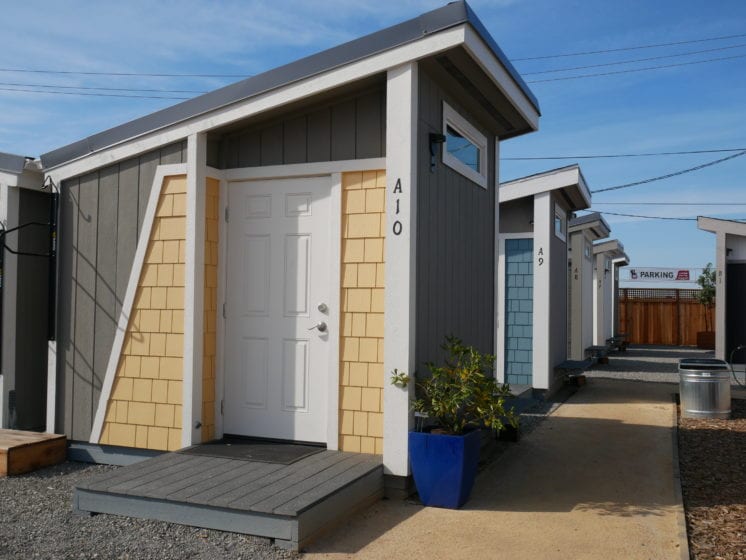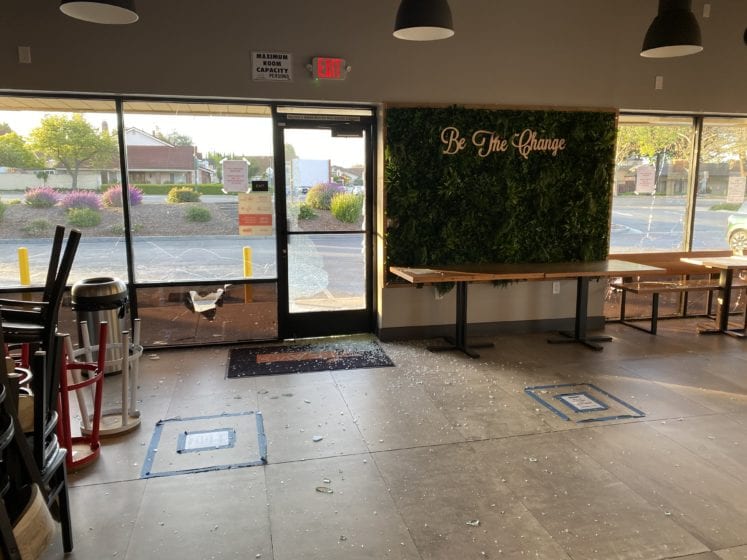To many people, 2020 felt like one of the longest years ever.
South Bay residents contended with a deadly pandemic that got worse as the year wore on, the economic and social fallout of measures to contain the disease, civil unrest in the streets and wildfire smoke in the sky.
There was no shortage of news. The San José Spotlight team rushed from covering frequent briefings by county health officials, visiting businesses struggling to keep doors open and chronicling the struggle of the region’s homeless — all in a year of an historic, national election.
And readers followed. The stories below were our top 10 most-read of 2020.
Santa Clara County issues COVID-19 stay-at-home order


Dec. 4: Nine months after Santa Clara County’s first COVID-19 shutdown, Bay Area health officials preempted Gov. Gavin Newsom’s shutdown orders with one of their own. They issued a stay-at-home order in response to the most recent surge. The order shuttered all barbershops, nail salons, personal care services, movie theaters, museums and bars and wineries, while limiting retail to 20% capacity. As many small businesses across the Bay Area have continued to deal with changing restrictions, this was the latest blow to their financial security, and for some, their trust in local and state government. The shutdown remains in place at least until Jan. 4.
Santa Clara County moves to COVID-19 purple tier — most restrictive
Nov. 16: As Santa Clara County counted nearly 400 new COVID-19 cases daily, it plunged back into California’s most-restrictive purple tier. With local hospitalizations rising steadily, this was part of the deadliest surge the county and the state had seen since the beginning of the pandemic.
Santa Clara County’s newest health order took effect. Here’s what’s new.
May 22: More than two months into the pandemic, health officials were still struggling to learn how to contain the virus. Many residents had questions about what businesses would be open, which were closed and whether masks would be required in public places. By May, public transit operators required face coverings, but not necessarily masks — though at this point masks were “strongly encouraged.” Public Health Officer Dr. Sara Cody also noted for the first time, but not the last, that the county had made progress in controlling the virus. She warned the county could backslide if reopening happened too quickly.
Santa Clara County officials criticized for rollout of latest shelter-in-place order
June 8: As health officials took the reigns on openings and closures during the pandemic, a move in June to allow businesses to reopen took many leaders by surprise — and angered them. Santa Clara County had been under some of the nation’s strictest health measures since March, and patience was beginning to thin in some places. Some local leaders said they didn’t have enough notice to give guidance to businesses. At that time, leaders also didn’t know that similar closures and re-openings would persist for the next six months and beyond.
Access v. Abuse Crema Coffee closes in San Jose due to ADA lawsuit


Jan. 26: The year marked the Americans with Disabilities Act’s 30th anniversary. Established in 1990, the ADA prohibits discrimination based on disability in employment, transportation, across government programs and in public venues. San José Spotlight looked at the law’s impact in Silicon Valley, including on business such as Crema Coffee which closed after facing lawsuits over ADA access.
The popular community meeting space in San Jose shut down because the owners said they couldn’t afford to settle its case, one of more than 1,400 filed in recent years by local attorney Tanya Moore. Crema Coffee eventually consolidated and moved to Pier 402 on Race Street.
Comcast to provide tech, training to San Jose tiny home residents


March 11: San Jose opened its first tiny home community with 40 units poised to help unhoused individuals get off the streets. However, many of these people were also in need of jobs. Comcast stepped in to fill that need with a program to provide internet access and digital training.
Coronavirus: Santa Clara County lifts some stay home restrictions
April 29: Readers paid rapt attention to any changes in COVID-19 restrictions. When the initial stay-at-home order lifted in April, the first to breathe a sigh of relief were the construction, childcare, outdoor and real estate industries. While many continued to work from home, outdoor activities at golf courses, athletic fields and skate parks reopened with strict social-distancing guidelines.
Construction projects, which had come to a dead stop in April, began to resume. Previously, the region’s orders shut all construction sites except for those with at least 10 percent affordable housing, public works projects or those increasing or maintaining shelter and hospital capacity. Starting May 4, construction began under the new orders.
Newsom loosens stay-at-home order as hospitalizations stabilize


April 22: After the first COVID-19 shut downs, the governor’s relaxing of stay-at-home orders were a welcome relief. Hospitals could begin elective surgeries, Newsom said, allowing other healthcare needs to be met. At the time of this article, California only had about 35,000 confirmed cases of the novel coronavirus. Now, there have been just shy of 2 million cumulative cases and nearly 23,000 deaths attributable to COVID-19.
South Bay cannabis shops can no longer sell recreational marijuana under new order
April 1: Weeks into the pandemic, public health officials were scrambling to provide succinct and informed guidance to business owners on how to flatten the curve. Officials ran into a few bumps, however, when trying to create guidance around marijuana. At first, shops were open for both recreational and medicinal customers. Then, officials said only medical users could buy cannabis. These changing restrictions angered and confused many business owners in the industry.
‘Every single window was smashed:’ Asian-owned San Jose businesses targeted


April 23: Businesses were already suffering from shut down orders in March and April, reducing sales sometimes by half. But several Asian-owned businesses were also the subjects of vandalism across San Jose’s Berryessa neighborhood, though police said there was no indication these were hate crimes.
The vandalism, however, occurred during an increase of coronavirus discrimination against Asian Americans and Pacific Islanders across the South Bay. This led the Asian-American Pacific Islander Civil Rights Center to launch a portal in March where victims could report discrimination. They received more than 1,000 reports in the first two weeks from across the country.
Contact Madelyn Reese at [email protected] and follow her @MadelynGReese


Leave a Reply
You must be logged in to post a comment.